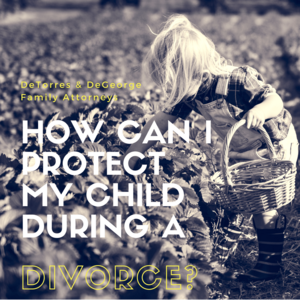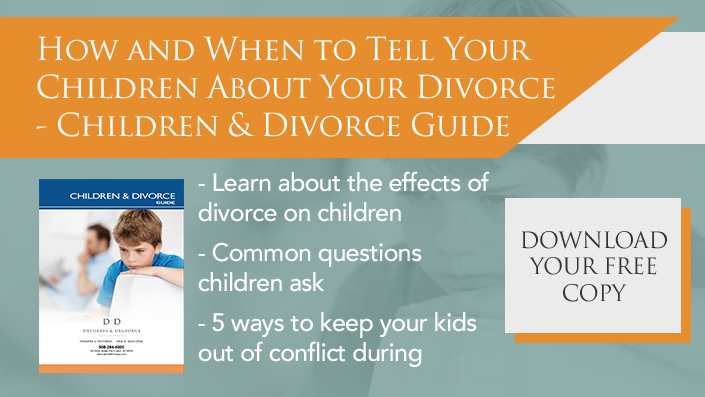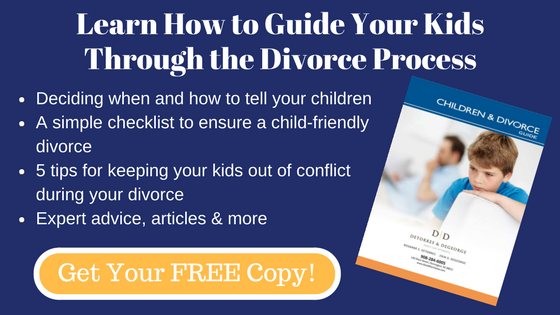 One of the most difficult aspects of a divorce has nothing to do with the financial situation of the people involved, but with their children and the impact of divorce on them. Divorce is a tough emotional experience not only for the parents but also the children, as the entire family dynamic changes. People often struggle with this aspect, whether it be concern about how to tell the children about the divorce or the eventual impact on the child’s life.
One of the most difficult aspects of a divorce has nothing to do with the financial situation of the people involved, but with their children and the impact of divorce on them. Divorce is a tough emotional experience not only for the parents but also the children, as the entire family dynamic changes. People often struggle with this aspect, whether it be concern about how to tell the children about the divorce or the eventual impact on the child’s life.
People going through a divorce are often torn about how they will raise the issue with the children – whether they tell the children in a family meeting, or perhaps with the assistance of a third party such as a therapist the child already trusts. This can also be impacted by the age of the children. Obviously the discussion that mommy and daddy are divorcing is going to be a very different conversation with a toddler than with a teenager. It is important to remember that while your relationship with the other party is over and there may be a lot of hurt feelings, the children did nothing wrong, and it’s important that you make your best effort to not speak poorly of the other parent or share inappropriate information with the children. There’s no reason for the children to know the details of what led to the divorce or information about litigation that has already occurred.
Just as with adults, the children will probably be very concerned about what life will be like after the divorce. Will they live with mom or dad? Will they have to move? Change schools? Will they still be able to see their friends and the other parent’s side of the family? These are all very valid concerns for a child, and they should be addressed sensitively and honestly. It may be a good idea to get the children into therapy for at least a short time so that they are provided with a neutral viewpoint who can assist them in adjusting to their new reality. Mom and Dad should also be involved so the child’s therapist can provide some insight on issues the child might be struggling with.
The effect of a divorce on children will vary depending on the child, as well as their age. In some ways, it may be easier for a young child to adjust to life after the divorce as it will quickly become the only life they remember. Toddlers are also more likely to simply be happy to see their other parent during those parenting times, whereas a teenager might have stronger opinions and resist a relationship with the other parent if they have been led to believe one person may be “to blame” for the divorce.
One of the most important pieces of advice we provide to our clients is that they should always try to keep the child’s best interest in the forefront of their minds. It does not benefit the child for mom or dad to vent about the other parent to the children, or to share information about the divorce proceeding with the kids. A parent should not be putting the children in the middle of their divorce issues, or using a child to relay messages. The children should come through a divorce with one belief that should be unshakeable: That while mom and dad may not love one another anymore, the children will always be loved by both of their parents.
At DeTorres & DeGeorge, we have extensive experience in guiding parents through the difficult process of divorce and assisting them in making every attempt to ease the strain on their children. Call us at 908-284-6005 or 973-264-4100 to schedule an appointment with one of our attorneys today.


 START LIVE CHAT
START LIVE CHAT











